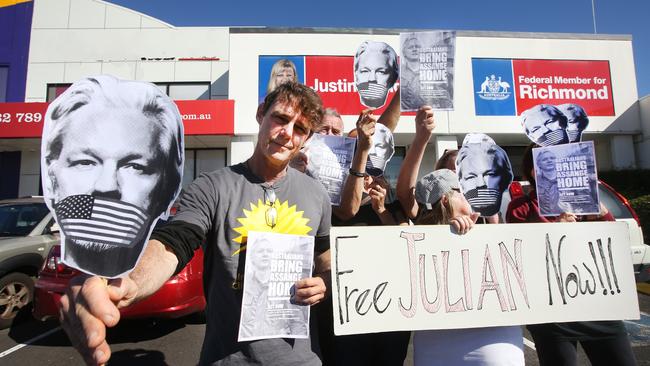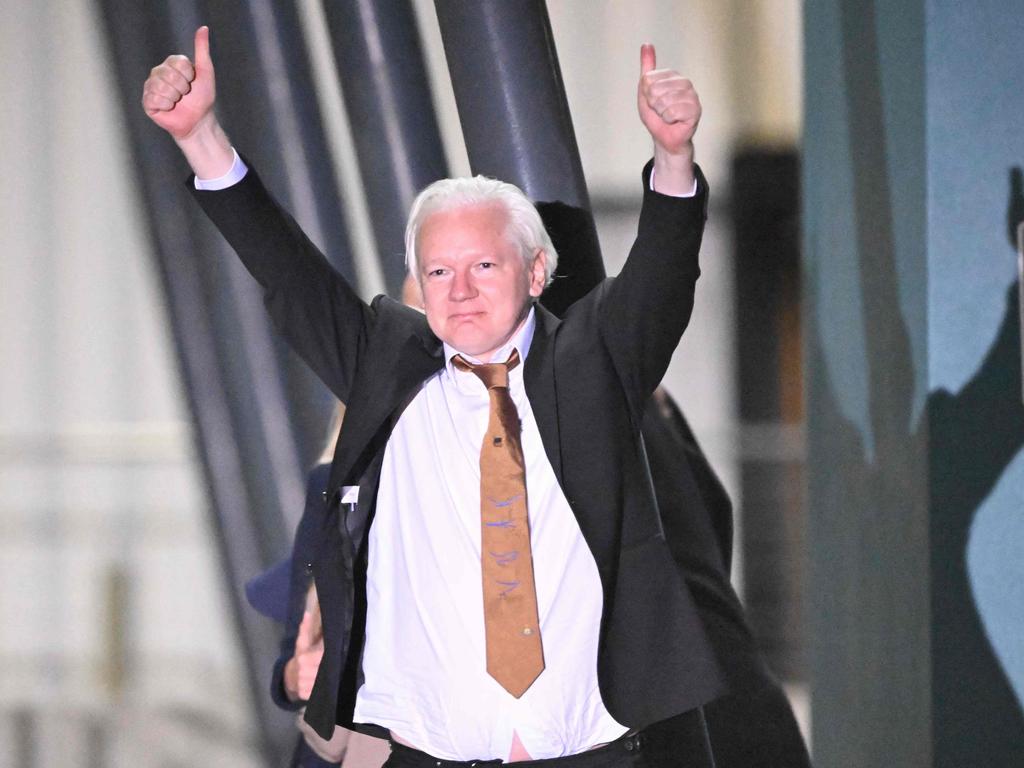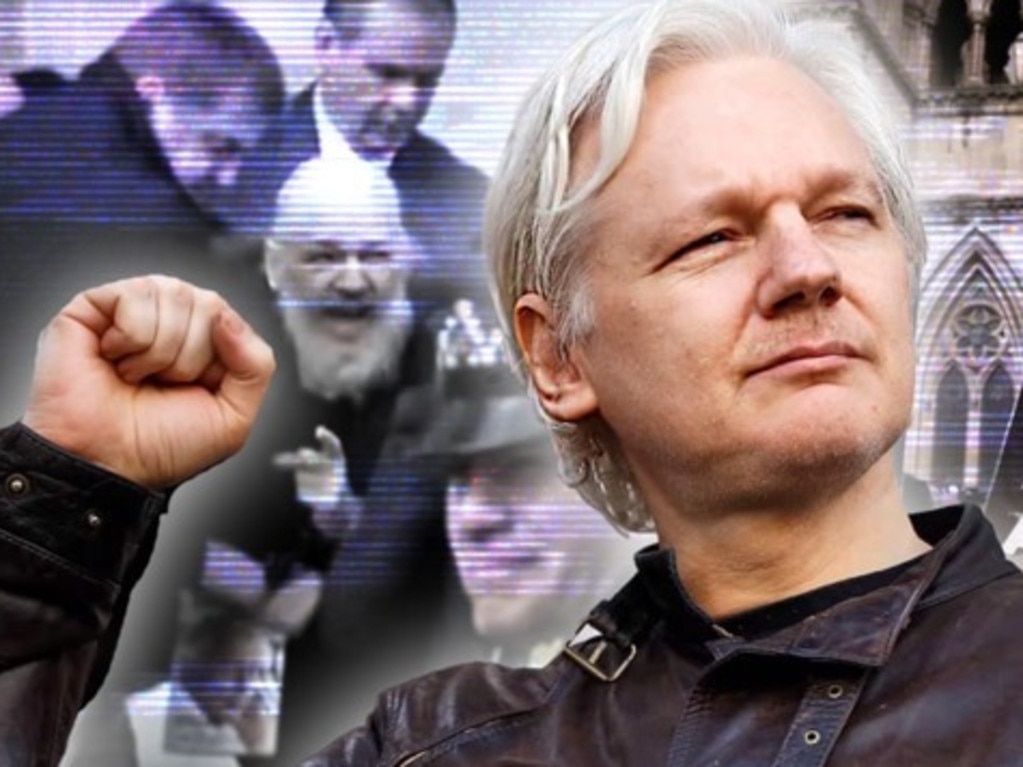
Thus, had Assange’s plea bargain been filed in a US federal court district, it would have been randomly assigned to one of the district’s judges. There was therefore a real chance the case would end up in a court that seriously questioned whether the agreement served the interests of justice.
But the Northern Marianas, which are an unincorporated territory of the United States, have a court system of their own, in which judges do not have life tenure. And their only district court judge, who speedily approved the agreement, was appointed by Barack Obama and reappointed by Joe Biden.
Moreover, the fact that the Northern Marianas are in the midst of a devastating fiscal crisis, making their financial viability dependent on the US administration’s goodwill, must have weighed on the context in which the court’s consideration of the plea bargain occurred.
It is consequently difficult to avoid the impression that the process was carefully stage-managed, and its unusual location chosen, to ensure Assange would walk free, never having the allegations that he had committed major offences tested.
That outcome is an insult to the rule of law, made all the more jarring by the rapturous welcome Assange received on returning to Australia. And even worse, it can only fuel the disdain Assange’s supporters so frequently display for the protection of highly classified information.
The reality, however, is that far from being inimical to democracy, the development of rigorous systems for protecting sensitive information was a crucial part of the democratic achievement.
In effect, secrecy was not an issue in the absolutist regimes of early modern Europe; that the affairs of state were secret was accepted as an imperative necessity.
It is therefore unsurprising that the members of the absolutist monarchs’ inner circles (their “cabinet”) were referred to as “secretaries” – they were the keepers of the king’s secrets. And it is equally unsurprising that Louis XIV, would, in his Memoirs, treat it as axiomatic that it was not just the monarch’s right but his duty to ensure governance was “as confidential and obscure as possible”, as secrecy both weakened the state’s enemies and magnified the aura of royal authority.
Set against that backdrop, Marchamont Nedham’s trenchant editorials, written under the auspices of John Milton and widely circulated as The Excellencie of a Free State (1656), were rightly regarded as revolutionary. There was, Nedham argued, a need to sharply distinguish “Acts of State” (Acta Imperii) from “Secrets of State” (Arcana Imperii). The former should take place in broad daylight; only the latter could be shrouded from public view. Setting the principles underpinning that divide was a matter for parliament, enforcing it for the magistrates.
Nedham was far ahead of his time. But by the end of the 18th century, Jean-Jacques Rousseau had introduced the term “transparency” into political discourse, Adam Smith had lauded the virtues of “accountability” and Immanuel Kant had framed his “principle of publicity”, which made it a sine qua non of government action that “the maxim on which an action is based” – though not necessarily the action itself – “should be public”.

Secrecy was not to be eliminated; it was to be tamed by legislation – and like other crimes, breaches were to be judged by independent courts.
That ferment of Enlightenment thinking resonated loudly in the newly founded American republic. The members of the Democratic Society of Pennsylvania feted July 4, 1794 with a toast to “Governmental secrecy: May it be banished (from) the land of freedom”. But as they dealt with the difficulties of negotiating the Jay Treaty of 1794, which set the basis for peace between the US and Great Britain, both George Washington and congress were forced to address the protection of confidential information.
In trying to do so, Washington devised the rudiments of a classification system that would distinguish material according to its sensitivity and the risks associated with its release. Meanwhile, congress grappled with defining the allowed scope of governmental secrecy and reconciling confidentiality with accountability.
They were scarcely able to fully solve those problems. But in safeguarding the republic from successive global crises, they helped establish three fundamental principles. That even in a democracy, the executive could, for reasons of national security, shield information from the public, subject to legislated guidelines and legislative oversight. That unauthorised disclosure of that information was a serious crime, to be dealt with – without fear or favour – by the ordinary courts. And that where the system proved defective, it should be corrected through the normal mechanisms of democratic decision-making; that is, by legislative amendment.
Those principles, which made secrecy compatible with democracy, retain all of their validity. But Assange rejects each and every one of them, both in his words and his deeds.
To describe those deeds as civil disobedience would be as facile as it is erroneous. Civil disobedience has never meant “anything goes”; as Martin Luther King famously explained in his “Letter from Birmingham City Jail”, conduct is only worthy of that name if it is inspired by “the very highest respect for the law”.
King did not hold that view solely because even imperfect democracies merit some deference from their citizens. He held it because protesters could hardly insist on others respecting the laws the protesters had championed if the protesters themselves had treated the rule of law with contempt.
That is why King argued that those who engaged in civil disobedience should accept the penalties their conduct entailed, rather than demanding special treatment. To do anything else would be contrary to equality before the law, King’s lodestar, and risked undermining the legal order on which a better democracy could be built in future.
There is, however, a chasm between King’s idealism and Assange’s antinomian narcissism. Far from being a hero, Assange craves sainthood without cost, martyrdom without tears. And far from advancing the cause of freedom, to celebrate Assange – and allow him to raise himself above the law – is to glorify the lawlessness that daily mars our streets, our universities and our public places.
Democracy, which thrives on openness, and national security, which requires a large measure of secrecy, have always been uneasy bedfellows. Making them live in harmony is, and will forever be, a challenge the world’s democracies must face if they are to survive. By rejoicing at Assange’s success, his supporters in the government and the Coalition have made that task all the harder.
More Coverage
 It is therefore unsurprising that the members of the absolutist monarchs’ inner circles (their “cabinet”) were referred to as “secretaries” – they were the keepers of the king’s secrets.
It is therefore unsurprising that the members of the absolutist monarchs’ inner circles (their “cabinet”) were referred to as “secretaries” – they were the keepers of the king’s secrets.






From the moment he was accused of sexual offences in Sweden, Julian Assange had one objective: to avoid ever being tried. Now he has succeeded, making a mockery of the efforts to bring him to account.